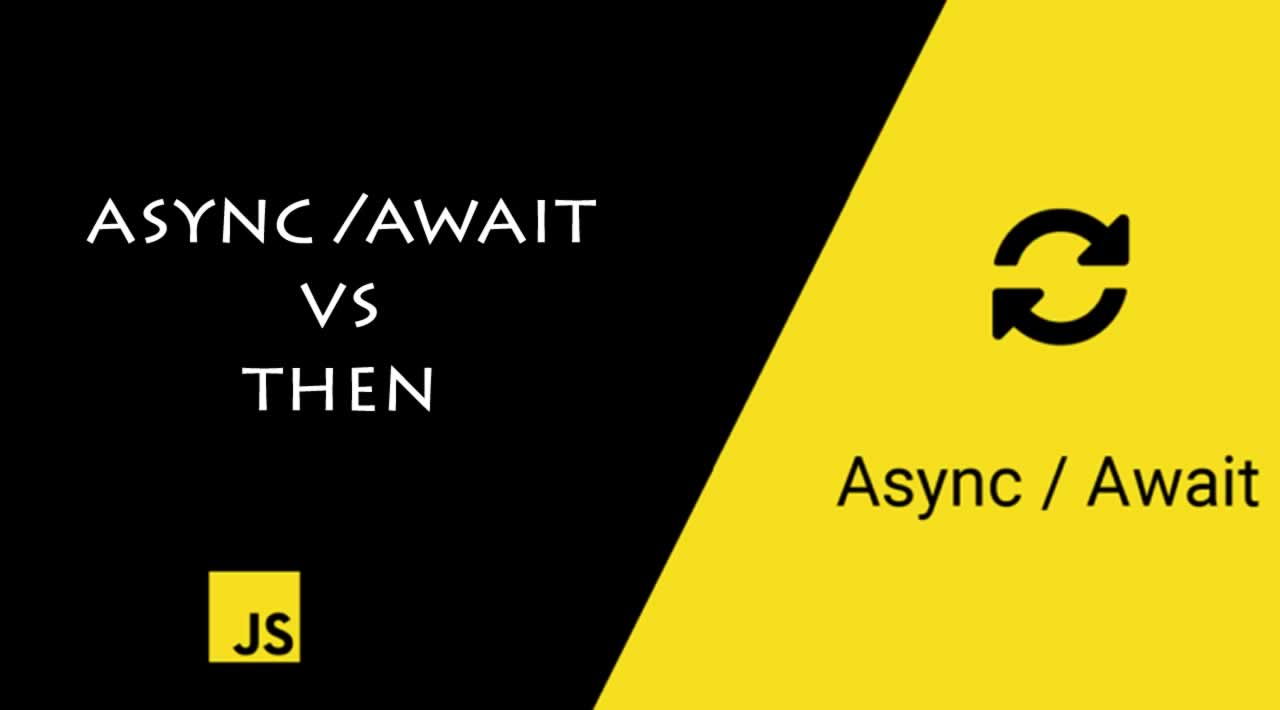async/await vs then
As I’ve stated in a lot of other posts, I’m a big fan of async/await. I think it’s a pretty clean way to manage code your synchronous and asynchronous code.
Async/Await awesomeness
I want to compare some of the bad that can be avoided with async/await.
// Yucky then usage
async function getThePizza() {
functionGettingFromMongo('someArguments').then((someData) => {
// We want to use this data so we need to know that this promise completed
doSomeWorkWithAPromise().then((moreData) => {
const somethingCool = someData + moreData;
insertToMongoNow(somethingCool).then((response) => {
console.log(‘success!’, response);
}).catch((e) => {
console.log(‘some error happened’, e);
});
});
});
}
So this is a function where we are entering callback hell. While .then() isn’t a callback function, codewise it reads the exact same. It’s a bunch of nested functions that get deeper and deeper and make code less and less readable.
// So good.
async function getThePizza() {
const someData = await functionGettingFromMongo(‘someArguments’);
const moreData = await doSomeWorkWithAPromise();const somethingCool = someData + moreData;
try {
const response = insertToMongoNow(somethingCool );
console.log(‘success!’, response);
}
catch(e) {
console.log(‘some error happened’, e);
}
}
It’s a lot more readable. At the least it’s not getting more and more indented. I had been using async/await exclusively since I discovered it so much so that I started thinking of .then() as bad and kind of forgot that the beauty of programming is that almost everything is situational.
When .then() isn’t so bad
When I’m trying to scrape a lot of pages at once I don’t want to be blocked. I don’t use await but instead push the promises into an array and use Promise.all. That will ensure that I know when everything completes so I can close my db connection or puppeteer browser. Like this:
async function getThePizza() {
const promises: any[] = [];
for (let url of lotsAndLotsOfUrls) {
promises.push(functionForHandlingTheUrl(url));
}
await Promise.all(promises);
await closeMyDbConnectionOrPuppeteerOrSomething();
}
This works fine. Except for when I want to do something with the specific url after functionForHandlingTheUrl finishes with it. Now what? Using await looks like this:
async function getThePizza() {
for (let url of lotsAndLotsOfUrls) {
const something = await functionForHandlingTheUrl(url);
await dbWorkOrSomething(something);
}
await closeMyDbConnectionOrPuppeteerOrSomething();
}
Very readable but much slower. I’m no longer taking advantage of any concurrency around I/O threads. So what’s the better alternative? This worked GREAT:
async function getThePizza() {
const promises: any[] = [];
for (let url of lotsAndLotsOfUrls) {
promises.push(functionForHandlingTheUrl(url).then(something => {
// This parts only happens when functionForHandlingTheUrl completes and doesn’t block the rest
await dbWorkOrSomething(something);
}));
}
await Promise.all(promises);
await closeMyDbConnectionOrPuppeteerOrSomething();
}
Using .then() here makes it so I have one nested function, it’s true, but we are able to do stuff when only that specific iteration is ready. It doesn’t block the rest of the looping so I am still lightning fast. And I am happy.
Thanks for reading ❤
If you liked this post, please do share/like it with all of your programming buddies!
Follow us on Facebook | Twitter
Further reading about JavaScript
☞ The Complete JavaScript Course 2019: Build Real Projects!
☞ Vue JS 2 - The Complete Guide (incl. Vue Router & Vuex)
☞ JavaScript Bootcamp - Build Real World Applications
☞ JavaScript Programming Tutorial - Full JavaScript Course for Beginners
☞ New ES2019 Features Every JavaScript Developer Should Know
☞ Best JavaScript Frameworks, Libraries and Tools to Use in 2019
☞ React vs Angular vs Vue.js by Example
#javascript #web-development
